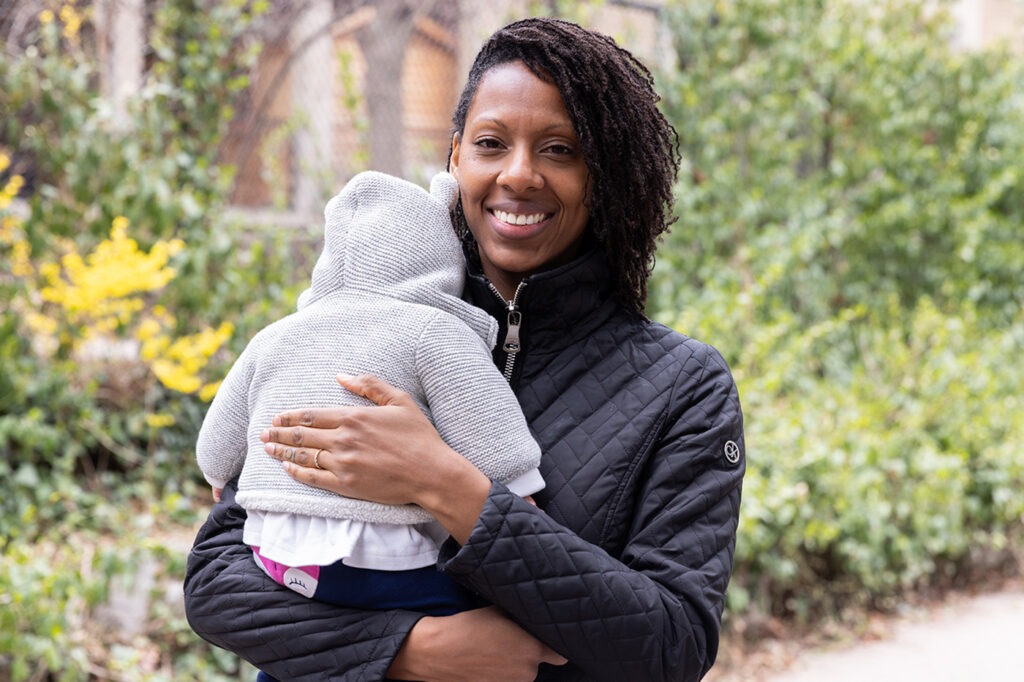
Unity Health Toronto’s tiniest patients receive top-notch care at two Neonatal Intensive Care Units. So do their moms.
STORY AND PHOTOS BY KATIE COOPER
When Chimwe Brown showed up at St. Michael’s Hospital with abdominal pain 27 weeks into her second pregnancy, she didn’t think much of it. “I felt bad actually going to the hospital because I did feel like I’d be wasting people’s time,” she says. When routine tests showed that she was in active labour, “I was dumbfounded,” she says.
After being rushed by ambulance to Sunnybrook Hospital she learned that her baby was breech. She remembers waking up in the recovery room after an emergency C-section to her husband telling her that they had a girl. When she met Esther for the first time, she was in an incubator hooked up to a bunch of tubes.
“I couldn’t hold her. All I could do was just look and touch her little foot,” Brown says.
At 31 weeks, Esther was transferred back to St. Michael’s where Brown had planned to give birth. “That was the beginning of our NICU experience,” she says.
Enjoying this story? Sign up for the Unity Health Toronto newsletter, a monthly update on the latest news, stories, patient voices and research emailed directly to subscribers.
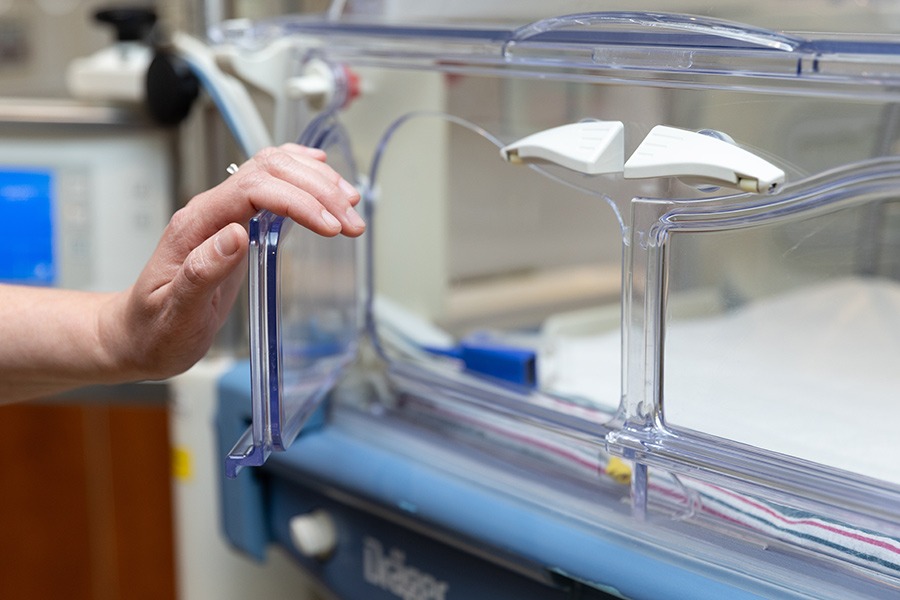
The smallest and sickest patients at Unity Health Toronto receive specialized care at two Neonatal Intensive Care Units (NICUs). St. Michael’s Hospital in downtown Toronto and St. Joseph’s Health Centre in the west end both have approximately 500 admissions annually. They are Level 2C which means that they can care for babies 30 weeks gestation and up.
Both sites are interprofessional hubs where teams of specially trained staff, including nurses, pediatricians, social workers, lactation consultants and occupational therapists, work together to serve their tiny patients. While tending to their urgent physical needs is top of mind, the programs have also placed special attention to the emotional wellbeing of parents and guardians during a taxing period on top of a major new life stage.
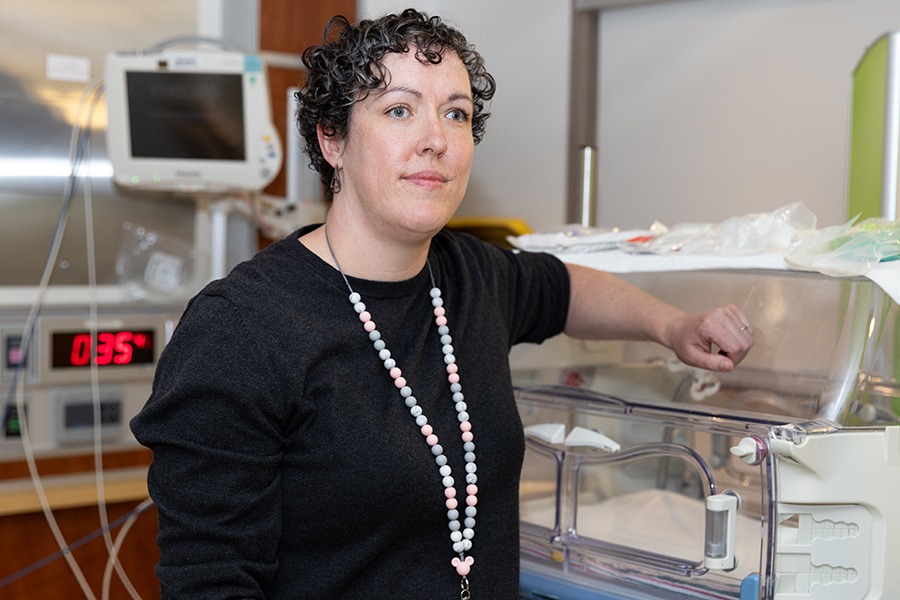
Social Worker Jackie Boyce has been working at the St. Joseph’s site for nine years. She provides psychosocial support to new parents as they navigate their NICU stays, works to augment the voice of families with the medical team, and supports the transition home of their newest family member.
“Trauma informed care is always part of my job,” she says. “I make sure that parents are as involved with their baby as possible. They are the leaders in their care.”
The process of giving birth presents a range of physical and emotional challenges, but being separated from your newborn is an added layer of strain.
“The mother-baby dyad is the biological, emotional and social bond that forms after birth and supports important factors of a newborn’s development,” says lactation consultant Diane Lima, who has worked at St. Michael’s for four years. “This is key in establishing strong emotional bonds between mother and child. When the dyad is separated all of these factors are disrupted and it is very traumatic for both.”
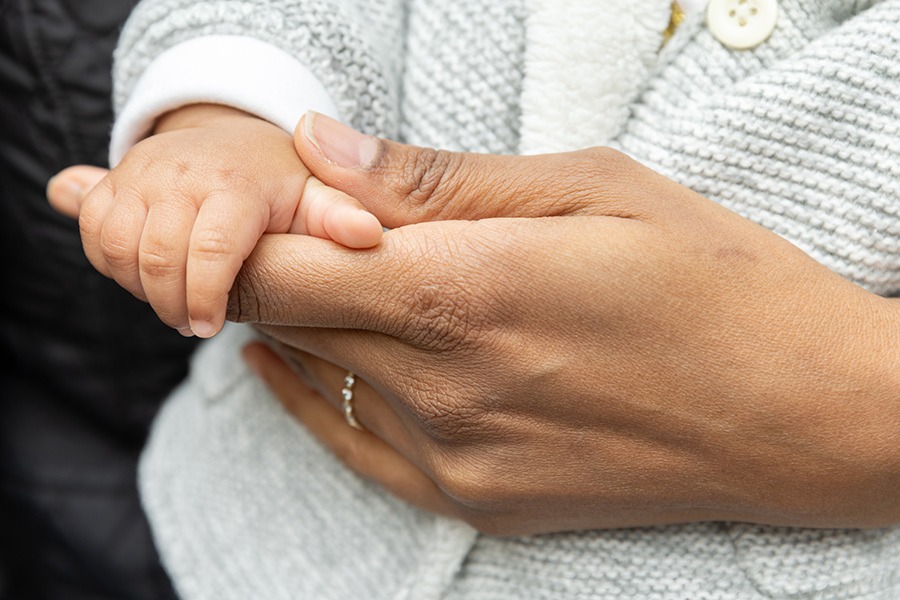
Brown knows that well. With Esther as an inpatient at St. Michael’s, Brown came to the hospital daily. One day, she broke down in tears. “I think that was the first time I realized, oh my goodness, this is crazy,” she says. “I just felt so robbed and incomplete. I was really grieving the loss of the pregnancy, and just watching her now have to do all of the things that she should be doing inside of me, outside of me was really hard.”
Spending only a few hours a day with her new daughter made bonding a challenge. There would be times when she would arrive just as a nurse was just putting Esther down for a nap. Other times she would feel guilty leaving while Esther was crying and needed comfort. When Brown and her son both became sick, she wasn’t able to visit for an entire month to eliminate spreading an infection. “I didn’t feel like she was mine, to be honest,” says Brown. “Because she had a whole system and a whole life that I wasn’t a part of.”
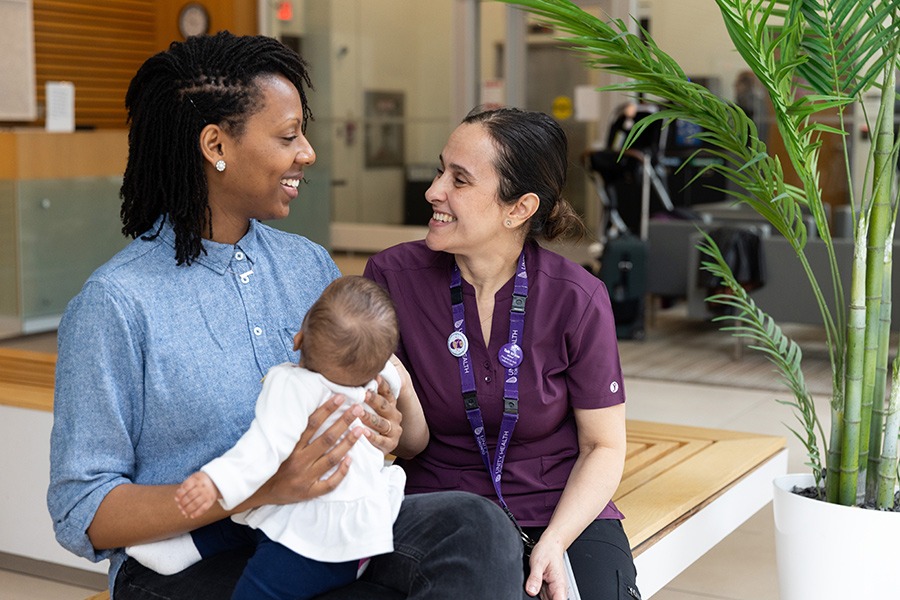
Although the majority of Lima’s role is to provide practical feeding support to new Moms – managing and increasing breastmilk supply and helping with latching – she is often at the front lines of emotional ups and downs. “When Chimwe came into Triage, her husband knew exactly where to find me,” says Lima. “I was able to provide her support and give her a hug.” The two already had a trusting relationship as Brown’s son was also born premature and required a stay in the NICU.
“She served like a pillar while I was there,” Brown says of Lima, who checked on Brown every day and kept an eye on Esther after she was discharged. “She sustained me and encouraged me.” Esther was born with a cleft lip, which made breastfeeding challenging, but Lima encouraged her to keep trying. “She would remind me that this is just a season, that there will be an end to it soon.”
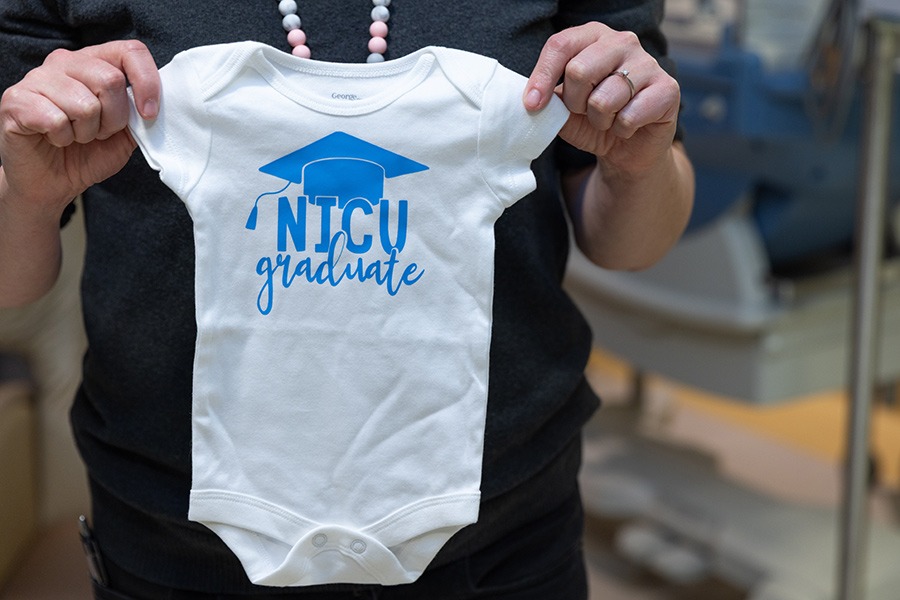
Along with Lactation Consultant Jennifer Smith at the St. Joe’s site, Boyce makes sure that a family’s stay in the NICU includes events they’d be celebrating at home to help families remain connected and support a sense of normalcy. Staff will dress up tiny patients in adorable outfits to mark special dates like Valentine’s Day and Christmas, and post on their instagram page. When infants are discharged, they are presented with a NICU graduate certificate and onesie. “Babies in the NICU don’t have the same milestones,” Boyce says. “But there are always reasons to celebrate and make them feel special.”
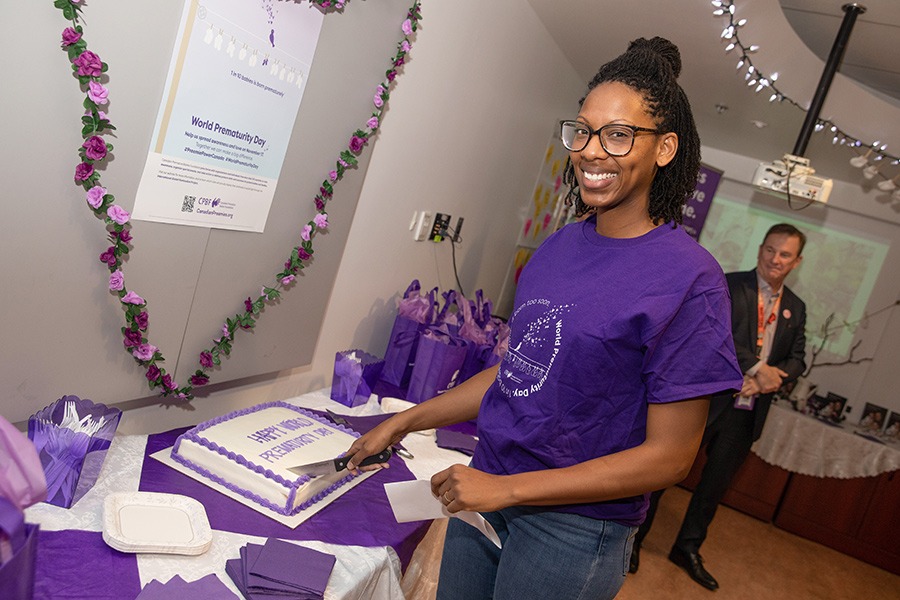
In November 2024 when Unity Health celebrated World Prematurity Day, Brown was asked to attend and share her story with staff and current families in the NICU. “I’m one that really benefits from hearing personal stories,” she says. “So if I could do that for other people who receive encouragement the same way, that’s amazing.”
Brown has had the opportunity to walk alongside friends of her own who are starting their own journey with preemie babies in the NICU. “When you’re in it, you really don’t see an end. You’re completely consumed in this one experience,” she says. Leading up to Esther getting discharged, Brown would do projects around the house to prepare for her coming home, like setting up the bassinet. “Visualize walking out of the hospital with your baby, going home with your baby. They don’t live in the NICU, they’re going to live with you.”
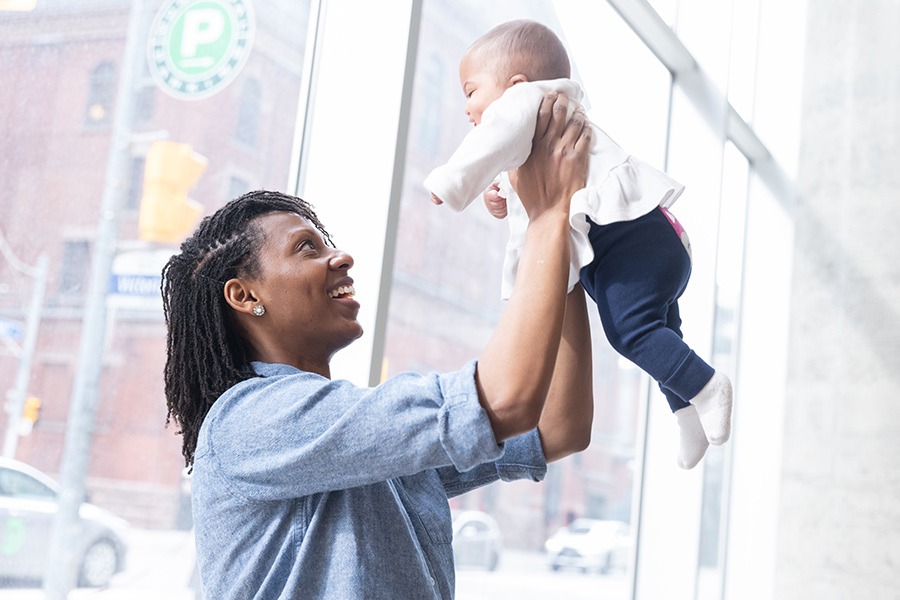
After a four month stay in the NICU, Esther is now home with her family. Brown finds joy in the simple things, like taking her for walks and sharing cuddles. “It certainly took a lot of work to get myself where I’m at mentally, but I think that I’m doing really well now,” she says. “I just feel like I’m actually able to enjoy being a mom to two babies. I’m really thankful. Every day I’m seeking to put my best foot forward and I have a really healthy perspective on how to view life and how to prioritize things.”
When asked about Brown, Lima says she is most proud of her dedication and resilience to her children. “She managed such a crisis with a smile on her face and often provided other mothers with words of encouragement. This was invaluable and made all the difference in the world.”
Formerly an emergency room nurse, Brown decided to become a homemaker after her first child was born. As the calendar approaches Mother’s Day, Brown finds herself reflecting on a few things. “Being a mom is a full time job. It’s so sacrificial. There are many hats that we wear and the work really goes unnoticed. But it’s good work, it doesn’t come back void of anything. This is the hardest work and it’s the greatest work.”
